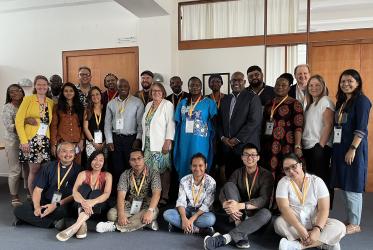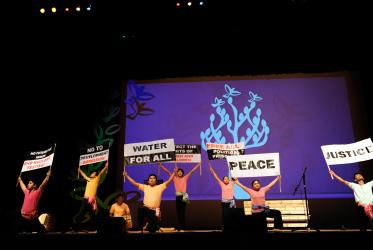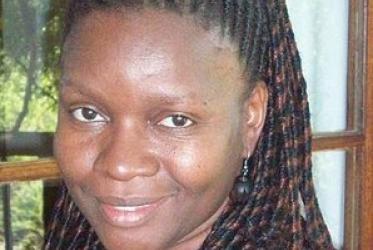Displaying 1 - 17 of 17
GEM School grounds economic justice biblically
06 July 2022
How racism and colonialism are exacerbating impacts of climate change
29 September 2021
Ecumenical School on Governance, Economics and Management (GEM) for an Economy of Life
19 - 30 August 2019
Jakarta, Indonesia
WCC-EHAIA pioneer receives honorary doctorate
21 March 2018
GEM School: integrating theology and economics
05 September 2017
A just financial and economic architecture is possible, students find
08 September 2016
2018 Ecumenical School on Governance, Economics and Management (GEM) for an Economy of Life
19 - 31 August 2018
Mexico City, Mexico
Living with God in the context of HIV and AIDS
27 February 2013





